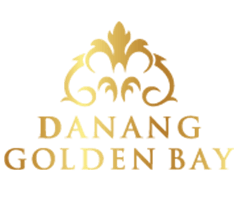Seasonal revenue patterns are going three-dimensional as hotels gain access to a broader audience base, across a wider global reach. This gives the sales and marketing manager the data insight they need to adapt to changing patterns in traveller behaviour in order to optimise in revenue management of holiday bookings.
Furthermore, as countries suffer financial problems, and Europe effected by the Brexit decision, the markets are fluctuating especially in already established markets. Therefore hotels need to encourage new bookings from new markets. The advance the adoption of digital bookings expands the hotel-booking network into new territories.

The travel market can no longer repeated its strategies, instead be prepared to manager a higher volume of strategies. Numbers of Russian tourists to Turkey is down as a result of the Russian ruble and the country’s political tensions with Turkey, Dutch traveller bookings to Greece have fallen, and Tunisa’s tourism has dropped -25.2%.
Hotel sales and marketing managers require more data to gauge demand from existing and new markets and be prepared to set relevant rates to optimise bookings., regularly. This together with different customer behaviours across the new consumer territories in addition to targeting specific consumer groups is building multilayed patterns of annual bookings and reservations.
Traditional Two-Season Booking Year

Summer rocks! And tourists have been booking their long family across the traditional summer months of June, July and August; while the grey-market has been filling this void. The ability to reach other markets through the internet means that hotels are not restricted to managing travel agents from one destination, but can distribute their rooms and rates direct through OTAs to a global audience booking network.
Revenue managers can now approach the market with more flexibility and create more specific products and packages for an intended market rather than general audience. And thus, with a wider reach prices can now be specific to buyer expectations. For example a Russian and Dutch tourist can find a package for 3-nights and both can be set to the optimal rate in each market, rather than at one single rate.
This therefore adds the need to have access to both Russian and Dutch consumer booking seasons; when hotels begin to build a list of hot demand countries a seasonal pricing strategy can be created for each market, therefore potentially extending the summer months from April – October.
Two becomes Four
Creating a simple summer and winter pricing strategy limits the options of maximising wider marketing campaigns or targeting more specialist high value groups. While the core summer season expands; the winter season is bringing more options to compete.
In Northern European markets, the Winter Getaway is gaining traction as more travellers seek to make a most of their annual holiday allowance; together with autumn last-minute sun and early summer general trade marketing campaigns. This is bringing high-value bookings, not often a family – but offering a new traveller demographic.
Therefore there are more and more pricing periods within a year rather than a couple of them, and this is especially important for resort hotels whose market fluctuates significantly and can be hindered if crisis hits its hot points.
Hot dates joins pricing strategies
Traveller booking behaviour is changing; it’s more last-minute, and some are taking the opportunity to travel at non-traditional times – out of the traditional summer holiday period. Access to cheap flights; more public holidays, and a wider range of events means that hotel booking patterns are getting more sophisticated.
Public holiday patterns and events are giving hotels the data to optimise marketing campaigns and increase revenue and room nights. By managing a demand for bookings across a wider network of sales channels and tapping into local campaigns; revenue managers can get the most from each room night booked.
Revenue managers can now handle more and improve the return with quick analysis and connectivity to the travel market across OTAs, travel agents and GDS.
Support and application of seasonal pricing and pricing per country can only be addressed with IP based pricing facility in the online booking industry, something in which BookLogic has achieved gains for hotels.
Advice:
- Connect directly to OTAs and GDS through a channel manager
- Access competitor and market rate reports
- Analyse key booking patterns
- Identify key high-value traveller dates and marketing campaigns
- Distribute dates for at least 12 – 18 months
- Create clear pricing strategies to each market
About BookLogic:
BookLogic is an award-winning customizable software solutions and marketing services provider for hotels and online reservation systems for the travel industry. Independently owned, the company was established in 2004, launching full operations in 2009, with headquarters in Germany, and offices in Turkey and Dubai. In 2015 BookLogic was awarded World Travel Award for World’s Leading Travel Technology Innovation and nominated for Europe’s & World’s Leading Hotel Booking Solutions Provider. BookLogic currently services to over 1,500 hotel properties supported by over 30 staff members.









